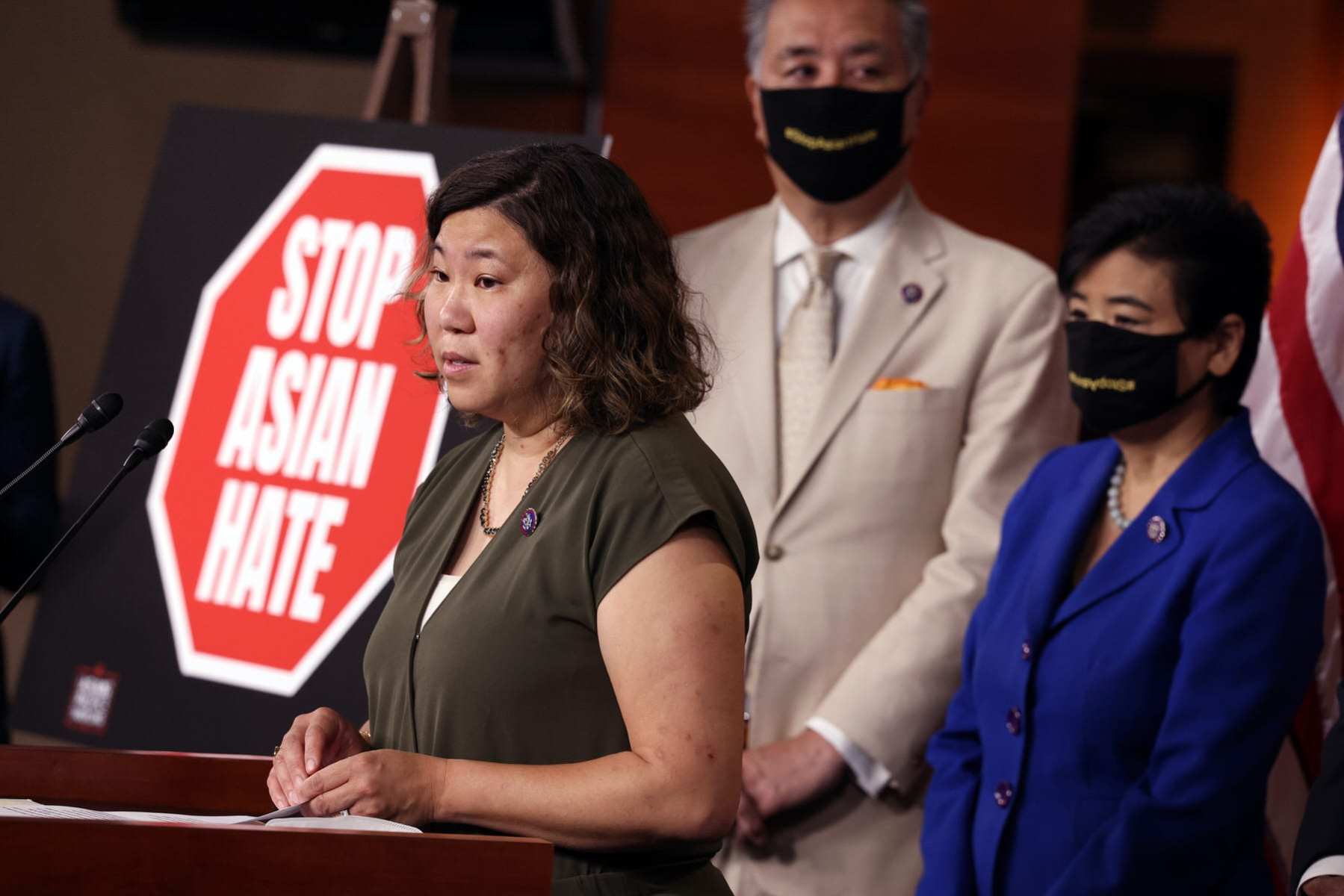The House voted 364 to 62 on Tuesday to pass a hate crimes bill in response to the reported uptick in violence and harassment against Asian Americans and Pacific Islanders during the pandemic. The legislation, known as the COVID-19 Hate Crimes Act, was then sent to President Joe Biden’s desk.
The bill, which was introduced in March and co-sponsored by Sen. Mazie Hirono of Hawaii and Rep. Grace Meng of New York, directs the Department of Justice to expedite the review of pandemic-related hate crimes and issue guidance for law enforcement agencies on how to better track and decrease such incidents. It also calls on the Department of Health and Human Services to issue guidance on how to mitigate racially discriminatory language when describing the pandemic. The Senate passed the bill on April 22 in a 94-to-1 vote — a rare instance of bipartisan cooperation.
“Asian Americans have been screaming out for help,” Meng said at a press conference on Monday, acknowledging the bill’s passage during AAPI Heritage Month. “And the House and Senate and President Biden have clearly heard our pleas.”
Between March 2020 and March 2021, more than 6,600 hate incidents were reported to Stop AAPI Hate, a coalition of community organizations, and nearly 65 percent of those were reported by women who said they were targeted. The number nearly doubled during March 2021 alone, according to the group. And more than 80 percent of Asian Americans — the fastest growing racial and ethnic group — said violence against them was increasing, according to a Pew Research Center survey conducted in April. One-fifth of these respondents cited former President Donald Trump’s rhetoric as a main reason for the uptick. Weeks before the survey was conducted, six Asian women were killed in a series of shootings in Atlanta. The 22-year-old gunman, who is White, faces hate crime charges.
“Those of Asian descent have been blamed and scapegoated for the outbreak of COVID-19,” Meng said. “And as a result Asian Americans have been beaten, slashed, spat on and even set on fire and killed. The Asian-American community is exhausted.”
Rep. Judy Chu of California, chair of the Asian Pacific American caucus, said during Monday’s press conference that the past year has also had a profound impact on the mental wellbeing of the Asian American community. Asian-American women, in particular, have been disproportionately affected.
According to a separate survey conducted in March by the National Asian Pacific Women’s Forum (NAPAWF), the majority of AAPI women said they had “personally encountered” racism in recent years. And as children return to in-person learning after a year of remote and hybrid learning, Asian American parents remain the most hesitant to send their children back due to safety concerns.
“What is it like to open up the newspaper and see that yet another Asian American has been assaulted, attacked and even killed?” Chu said. “Well, when you read that every single day and see that there’s 6,600 of them — and that’s probably an underreporting — then you start to think, ‘well, will I be next?’”
More than 85 Asian American and LGBTQ+ organizations, concerned with the potential for increased police violence, released a statement in May opposing the hate crimes bill.
Sung Yeon Choimorrow, the executive director of NAPAWF, said the solution should not be to increase law enforcement presence, especially in predominantly Black and Brown neighborhoods. In response to this criticism, Meng on Monday emphasized that the new legislation doesn’t allocate more funding to law enforcement agencies.
“The solution is to increase community awareness, education and make sure AAPI families feel included in schools,” Choimorrow said. “Correct the narrative, so we don’t become a two-dimensional object that people can use as a punching bag. That’s the only way we’re really going to be truly safe.”
Join us May 26 to discuss the rise of anti-AAPI violence with COVID-19 Hate Crimes Act co-sponsors Sen. Mazie Hirono and Rep. Grace Meng and anti-racist author Kim Tran.






